
Find Help
More Items From Ergsy search
-

Calls to Ban Vapes Near School Grounds Gain Momentum
Relevance: 100%
-

What role do schools play in supporting the social media ban?
Relevance: 44%
-
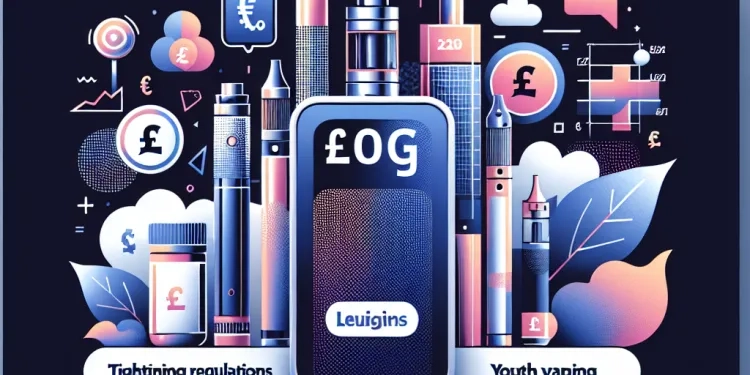
Rules on E-cigarettes to Tighten Amid Concerns Over Youth Vaping
Relevance: 42%
-

What initiatives are being taken to educate youth about the risks of vaping?
Relevance: 41%
-

Traditional Ground Burials
Relevance: 31%
-

Are there any exceptions to a hosepipe ban?
Relevance: 30%
-

What is a traditional ground burial?
Relevance: 30%
-

What role do parents play in the social media ban?
Relevance: 30%
-

Are there specific regulations for ground burials in the UK?
Relevance: 29%
-

Has the social media ban been successful in improving children's mental health?
Relevance: 29%
-

What impact has the social media ban had on cyberbullying incidents?
Relevance: 29%
-

What is a hosepipe ban?
Relevance: 28%
-

What environmental considerations are there for ground burials?
Relevance: 28%
-
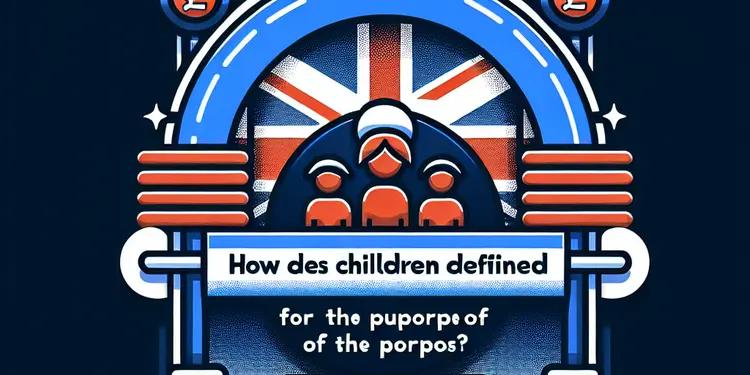
How are children defined for the purpose of this ban?
Relevance: 28%
-

How are hosepipe ban restrictions communicated to the public?
Relevance: 28%
-

What is the social media ban for children in Australia?
Relevance: 28%
-

Have children found ways to circumvent the social media ban?
Relevance: 27%
-

Who enforces hosepipe bans?
Relevance: 27%
-

Is a hosepipe ban legally enforceable?
Relevance: 27%
-
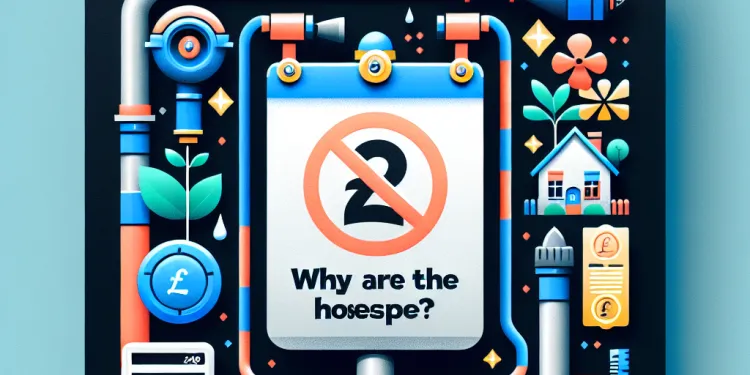
Why are hosepipe bans imposed?
Relevance: 27%
-

Why was the social media ban for children implemented in Australia?
Relevance: 27%
-

Can water companies enter my property to enforce a hosepipe ban?
Relevance: 27%
-

Is a hosepipe ban legally enforceable?
Relevance: 27%
-
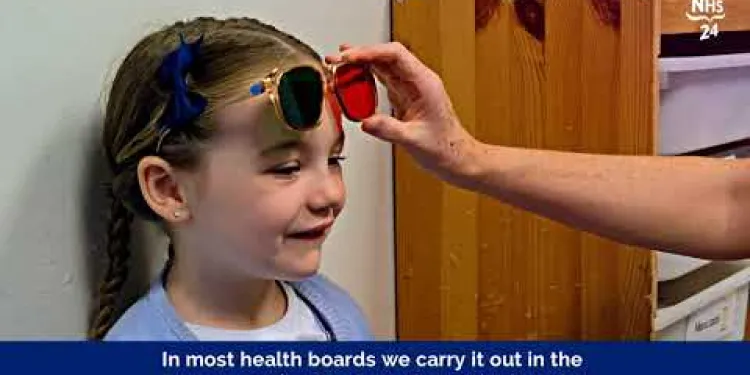
See4School
Relevance: 27%
-

Can a ground burial be held at any time of the year?
Relevance: 27%
-

Who is pushing for a social media ban for under 16s in the UK?
Relevance: 26%
-

Have any legal challenges been made against the social media ban?
Relevance: 26%
-

How long do hosepipe bans last?
Relevance: 26%
-

Has the social media ban for children in Australia been a success ?
Relevance: 26%
-
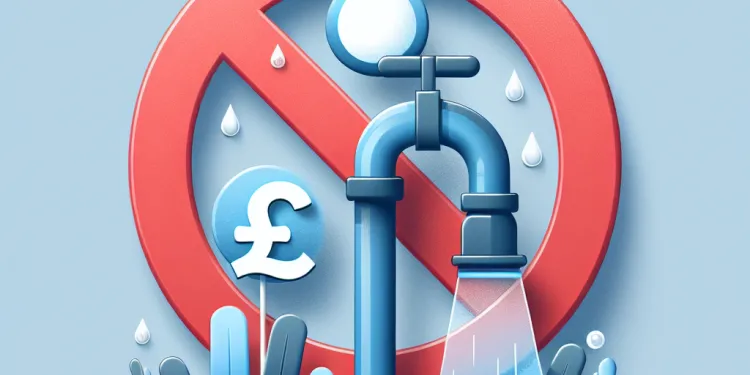
What happens if a hosepipe ban is ignored?
Relevance: 26%
-

How do hosepipe bans affect farmers?
Relevance: 26%
-

Is embalming required for ground burial in the UK?
Relevance: 26%
-

Is there public support for the social media ban in Australia?
Relevance: 26%
-

Can children with disabilities access school meals?
Relevance: 25%
-

What is the public opinion on a potential social media ban for under 16s in the UK?
Relevance: 25%
-

How is the success of the social media ban measured?
Relevance: 25%
-

Do hosepipe bans apply to public parks and gardens?
Relevance: 25%
-

What impact could a social media ban have on under 16s in the UK?
Relevance: 25%
-

How can I check if there is a hosepipe ban in my area?
Relevance: 25%
-

How are food allergies managed in UK schools?
Relevance: 25%
Introduction
Recently, there has been a significant increase in the discussion surrounding vaping, particularly in the context of its proximity to school grounds in the UK. The issue is gaining momentum as parents, educators, and policymakers express their concerns about the potential health impacts of vaping on children and teenagers.
Health Concerns
Vaping, often perceived as a safer alternative to smoking, has become increasingly popular among young people. However, research has shown that vaping is not without risks, especially for young individuals whose bodies and brains are still developing. Nicotine, a common ingredient in many e-cigarettes, can harm adolescent brain development and may lead to addiction. Furthermore, the long-term health effects of inhaling vaping chemicals are still not fully understood, raising concerns about their safety.
Increasing Popularity Among Youth
The availability of a wide range of flavours and the perception of vaping as a trendy activity have contributed to its rising popularity among teenagers. This trend has prompted schools and health advocates to call for measures to curb the use of e-cigarettes near school premises. Many argue that easy access to vaping products and their frequent visibility may encourage students to start using them.
Proposed Legislation
In response to growing concerns, there have been increasing calls for legislative action to restrict the sale and use of vaping products near school grounds. Proposals include establishing vape-free zones around schools, similar to existing smoke-free areas, and stricter penalties for retailers caught selling vaping products to minors. Such measures aim to minimize the exposure and accessibility of vaping to young people.
Public Support and Opposition
The movement to ban vaping near schools has garnered support from various public health organizations and parent groups who advocate for the protection of children's health and well-being. However, there is also some opposition from vaping industry representatives and individuals who argue that vaping is a valuable tool for helping smokers quit and should not be overly restricted. They contend that responsible adult use should not be unduly penalized due to concerns about youth access.
Conclusion
As the debate over vaping near school grounds continues to unfold in the UK, it highlights the need for a balanced approach that addresses public health concerns while considering the rights of adult consumers. The growing momentum for bans around schools reflects a broader effort to safeguard young people's health and to ensure a safe and conducive learning environment. Policymakers will need to carefully weigh the evidence and public opinions as they consider potential legislative actions.
Introduction
People are talking more about vaping near schools in the UK. Parents, teachers, and leaders are worried about how vaping might hurt children and teenagers' health.
Health Concerns
Some think vaping is safer than smoking. But vaping can still be harmful, especially for young people. Nicotine in e-cigarettes can hurt young brains and cause addiction. We don’t know all the long-term health effects of vaping yet, which is why people are worried.
Increasing Popularity Among Youth
Vaping is popular with teenagers because of its different flavours and trendiness. Schools want to stop vaping near them, as they fear that seeing vapes easily available might make students want to try them.
Proposed Legislation
To combat worries, there are plans to keep vaping away from schools. Ideas include creating areas around schools where vaping is not allowed, and punishing those who sell vapes to kids. This is meant to keep kids safe from using vapes.
Public Support and Opposition
Many health groups and parents want to ban vaping near schools to protect kids. But some people in the vaping industry say vaping helps adults stop smoking and should not be banned too much. They believe adults should be allowed to use them responsibly.
Conclusion
The talk about vaping near schools keeps growing in the UK. It shows the need to protect young people's health while thinking about adults' rights. Lawmakers must think carefully about what people say and the evidence before making new rules.
Frequently Asked Questions
What is the main reason for banning vapes near school grounds?
The primary reason is to protect students from exposure to vaping, which is harmful to their health and can lead to nicotine addiction.
Are there legal restrictions currently in place for vaping near schools?
Many regions have laws restricting smoking and vaping near school grounds, but enforcement varies and further action is being called for.
How does vaping affect young students?
Vaping can harm brain development, affect concentration and memory, and increase the risk of addiction to nicotine and other substances.
What types of vapes are being targeted by the proposed bans?
The bans typically focus on all electronic nicotine delivery systems, including e-cigarettes, vape pens, and other similar devices.
Who is advocating for these bans?
Parents, health professionals, educators, and some lawmakers are advocating for stricter regulations on vaping near schools.
How do these proposed bans benefit the school community?
Proposed bans aim to create a safer, healthier environment for students by reducing exposure to harmful vaping products.
Have there been incidents related to vaping at schools?
Yes, many schools report incidents of students using or being caught with vaping devices, leading to increased calls for regulation.
What educational measures are being taken alongside the bans?
Schools are implementing educational programs to inform students about the risks of vaping and promote healthier choices.
How can parents support the ban on vaping near schools?
Parents can support the ban by participating in school meetings, discussing the dangers of vaping with their children, and advocating for policy changes.
Are there penalties for violating vaping bans near schools?
Penalties vary by region but can include fines, community service, or other legal actions against those who violate the bans.
What role do schools play in enforcing vaping bans?
Schools can enforce bans by monitoring areas around their premises, educating students, and collaborating with law enforcement.
Are vape shops affected by these bans?
Depending on local regulations, vape shops near schools may face restrictions or increased scrutiny to ensure they do not sell to minors.
How does vaping near schools impact student behavior?
Vaping can normalize nicotine use among students, lead to increased curiosity and experimentation, and result in behavioral issues.
What are some alternatives to vaping being promoted to students?
Alternatives include promoting healthy lifestyle choices and hobbies such as sports, arts, and other extracurricular activities.
Do vaping bans cover both public and private school grounds?
Bans often encompass both public and private schools, but specifics can vary based on the jurisdiction and local policies.
Is there scientific evidence backing the harmful effects of vaping on youth?
Yes, multiple studies indicate that vaping can lead to health issues such as lung damage, addiction, and potential gateway behaviors to smoking traditional cigarettes.
How do these bans target vape advertisements near schools?
Bans may include restrictions on advertising and prohibit advertisements that target or are easily accessible to minors near school zones.
What is the public opinion on vaping near schools?
Public opinion is increasingly in favor of stricter regulations to protect children and teenagers from the dangers of vaping.
Are there any success stories of schools reducing vaping through bans?
Yes, some schools have reported decreased incidents of vaping and healthier school environments after implementing stricter bans and educational programs.
What steps can students take to support a vape-free school environment?
Students can participate in awareness campaigns, report vaping incidents, and promote peer-led initiatives to discourage vaping.
Why can't people use vapes near schools?
People should not use vapes near schools. Vapes can be bad for kids. They do not want kids to see or use them. Schools want to keep kids safe.
The main reason is to keep students safe from seeing or trying vaping. Vaping is bad for their health and can make them addicted to nicotine.
Can you vape near schools? Are there any rules?
Lots of places have rules to stop smoking and vaping near schools. But people follow these rules differently, and some people want even more rules.
How does vaping affect young students?
Vaping means breathing in smoke from e-cigarettes. It can hurt people, especially young students.
Here are some ways vaping can affect young people:
- Vaping is bad for your lungs. It can make breathing hard.
- Vaping can make it hard to concentrate in school.
- Vaping can cause addiction. This means you want to vape all the time.
- Vaping can be expensive and waste your money.
If you know someone who vapes, you can help them by talking to a trusted adult or teacher.
Using simple words or pictures can help you understand more about vaping.
Vaping can hurt the brain. It can make it hard to pay attention and remember things. Vaping can also make you want more nicotine and other drugs.
Which vapes might not be allowed soon?
The rules usually stop people from using all electronic gadgets for nicotine. This means you can't use e-cigarettes, vape pens, or other similar things.
Who is asking for these bans?
Parents, doctors, teachers, and some government people want stronger rules about vaping near schools.
How do these bans help everyone at school?
The ban wants to make schools safer and healthier by keeping students away from dangerous vaping products.
Have there been problems with vaping at schools?
Yes, lots of schools are worried about students using vape pens. This has led to more people asking for rules to control vaping.
What are schools doing to help when things are banned?
Schools are teaching kids about the dangers of vaping and showing them better choices for their health.
What can parents do to help stop vaping near schools?
Parents can help with the ban. They can go to school meetings, talk with their kids about why vaping is bad, and ask for new rules.
Can you get in trouble for vaping near schools?
If you vape near schools, you might get in trouble. Vaping is not allowed near schools.
Here are some ways to understand and follow the rules:
- Ask a teacher or adult if you have questions about where you can vape.
- Look for signs that show where vaping is not allowed.
- Use a smartphone app that tells you about no-vaping zones.
If you break the rules, you might have to pay money, help your community, or other things the law says you must do. This can be different depending on where you live.
How do schools help stop vaping?
Schools can help stop things that are not allowed. They can watch the area around the school. They can teach students what is good or bad. They can work with police officers to help.
Do vape shops have to follow these bans?
Vape shops near schools have rules to follow. These rules make sure they do not sell to kids.
How does vaping near schools affect how students behave?
Kids might copy adults they see vaping near schools.
They might think vaping is okay or cool.
This can change how they act in school.
Helpful Tip: Talk to adults about how vaping is bad for you.
Use tools like videos or books to learn why vaping is not safe.
Using vape pens can make nicotine use seem normal for students. It can make them more curious and eager to try things out. This might lead to problems with how they behave.
To help with reading:
- Ask an adult to read with you.
- Use a reading app that can read the text out loud.
- Point to the words with your finger as you read.
Are there other things instead of vaping that schools are telling students about?
Here are some things schools suggest instead of vaping:
- Chewing Gum: It keeps your mouth busy.
- Playing Sports: It helps you stay active and healthy.
- Meditation: It helps you feel calm and relaxed.
- Art and Crafts: Being creative is fun and relaxing.
- Talking with Friends or Family: It’s good to share how you feel.
Here are some tools that can help:
- Relaxation Apps: Apps like Calm or Headspace can help you relax.
- Exercise Videos: Watch and follow along with exercise videos online.
Other things you can do are choose healthy habits and have fun with hobbies. This can be playing sports, doing art, or joining clubs at school.
Do rules against vaping apply at both public and private schools?
Bans often include both public and private schools, but the rules can be different depending on where you are and local rules.
Does science tell us that vaping is bad for kids?
Scientists have studied vaping. These studies show that vaping can be bad for kids.
If you want to learn more, you can use tools like pictures or videos to help understand the information better.
Yes, vaping can make people sick. It can hurt your lungs. It can also make you want to vape more and might make you try smoking real cigarettes.
How do these rules stop vape ads near schools?
Sometimes rules stop ads from showing certain things. These rules can stop ads from being near schools or where kids might see them easily.
What do people think about vaping near schools?
People have different thoughts about vaping near schools. Some think it's okay, while others do not. Let's look at both sides:
- Some people say it's not safe for children. They worry it might make kids want to try vaping.
- Others think it's a free choice for people who vape as long as they don't hurt anyone.
It's important to talk about how vaping near schools affects everyone. Here are some tips to help understand:
- Listen to what people around you say.
- Read simple articles or listen to news stories about vaping.
- Talk to a teacher or adult if you have questions.
More and more people think there should be stronger rules to keep kids and teenagers safe from the dangers of vaping.
Have any schools stopped kids from vaping by banning it?
Yes, some schools have stopped kids from vaping by banning it. Banning means they are not allowed to vape at school. This can help make the school a healthier place.
Schools can also talk to kids and tell them why vaping is bad. They can have fun activities or clubs, so kids have better things to do.
Some kids say that these ideas help them stay away from vaping.
Some schools say there is less vaping and they are healthier places. This is because they have made tougher rules and taught students more about vaping.
How can students help keep their school free from vaping?
Here are some simple steps:
- Do not use vapes at school.
- If you see someone with a vape, tell a teacher.
- Talk to your friends about why vaping is bad.
- Join a group that helps keep the school safe and healthy.
- Ask teachers for more information about vaping.
Some things that might help:
- Use pictures and videos to learn about the dangers of vaping.
- Find websites or books made for kids about healthy choices.
Remember, you can make a difference!
Students can help by joining in campaigns to make people aware of vaping, tell someone if they see vaping happening, and encourage their friends to avoid vaping.
Useful Links
This website offers general information and is not a substitute for professional advice.
Always seek guidance from qualified professionals.
If you have any medical concerns or need urgent help, contact a healthcare professional or emergency services immediately.
Some of this content was generated with AI assistance. We’ve done our best to keep it accurate, helpful, and human-friendly.
- Ergsy carfully checks the information in the videos we provide here.
- Videos shown by Youtube after a video has completed, have NOT been reviewed by ERGSY.
- To view, click the arrow in centre of video.
- Most of the videos you find here will have subtitles and/or closed captions available.
- You may need to turn these on, and choose your preferred language.
- Go to the video you'd like to watch.
- If closed captions (CC) are available, settings will be visible on the bottom right of the video player.
- To turn on Captions, click settings .
- To turn off Captions, click settings again.
More Items From Ergsy search
-

Calls to Ban Vapes Near School Grounds Gain Momentum
Relevance: 100%
-

What role do schools play in supporting the social media ban?
Relevance: 44%
-

Rules on E-cigarettes to Tighten Amid Concerns Over Youth Vaping
Relevance: 42%
-

What initiatives are being taken to educate youth about the risks of vaping?
Relevance: 41%
-

Traditional Ground Burials
Relevance: 31%
-

Are there any exceptions to a hosepipe ban?
Relevance: 30%
-

What is a traditional ground burial?
Relevance: 30%
-

What role do parents play in the social media ban?
Relevance: 30%
-

Are there specific regulations for ground burials in the UK?
Relevance: 29%
-

Has the social media ban been successful in improving children's mental health?
Relevance: 29%
-

What impact has the social media ban had on cyberbullying incidents?
Relevance: 29%
-

What is a hosepipe ban?
Relevance: 28%
-

What environmental considerations are there for ground burials?
Relevance: 28%
-

How are children defined for the purpose of this ban?
Relevance: 28%
-

How are hosepipe ban restrictions communicated to the public?
Relevance: 28%
-

What is the social media ban for children in Australia?
Relevance: 28%
-

Have children found ways to circumvent the social media ban?
Relevance: 27%
-

Who enforces hosepipe bans?
Relevance: 27%
-

Is a hosepipe ban legally enforceable?
Relevance: 27%
-

Why are hosepipe bans imposed?
Relevance: 27%
-

Why was the social media ban for children implemented in Australia?
Relevance: 27%
-

Can water companies enter my property to enforce a hosepipe ban?
Relevance: 27%
-

Is a hosepipe ban legally enforceable?
Relevance: 27%
-

See4School
Relevance: 27%
-

Can a ground burial be held at any time of the year?
Relevance: 27%
-

Who is pushing for a social media ban for under 16s in the UK?
Relevance: 26%
-

Have any legal challenges been made against the social media ban?
Relevance: 26%
-

How long do hosepipe bans last?
Relevance: 26%
-

Has the social media ban for children in Australia been a success ?
Relevance: 26%
-

What happens if a hosepipe ban is ignored?
Relevance: 26%
-

How do hosepipe bans affect farmers?
Relevance: 26%
-

Is embalming required for ground burial in the UK?
Relevance: 26%
-

Is there public support for the social media ban in Australia?
Relevance: 26%
-

Can children with disabilities access school meals?
Relevance: 25%
-

What is the public opinion on a potential social media ban for under 16s in the UK?
Relevance: 25%
-

How is the success of the social media ban measured?
Relevance: 25%
-

Do hosepipe bans apply to public parks and gardens?
Relevance: 25%
-

What impact could a social media ban have on under 16s in the UK?
Relevance: 25%
-

How can I check if there is a hosepipe ban in my area?
Relevance: 25%
-

How are food allergies managed in UK schools?
Relevance: 25%


